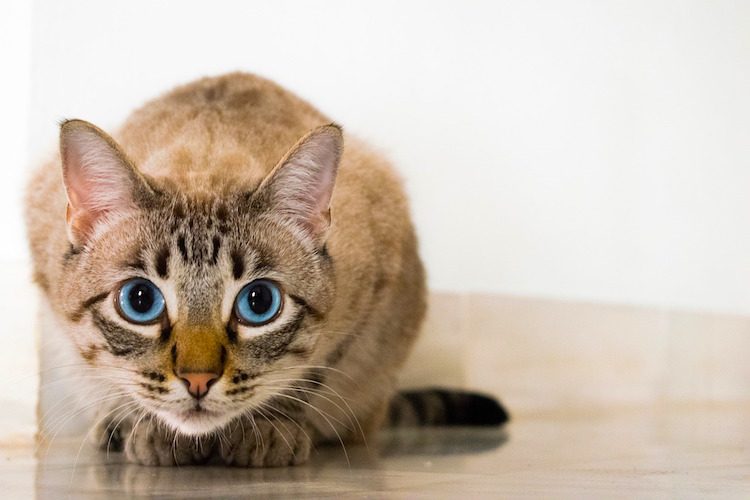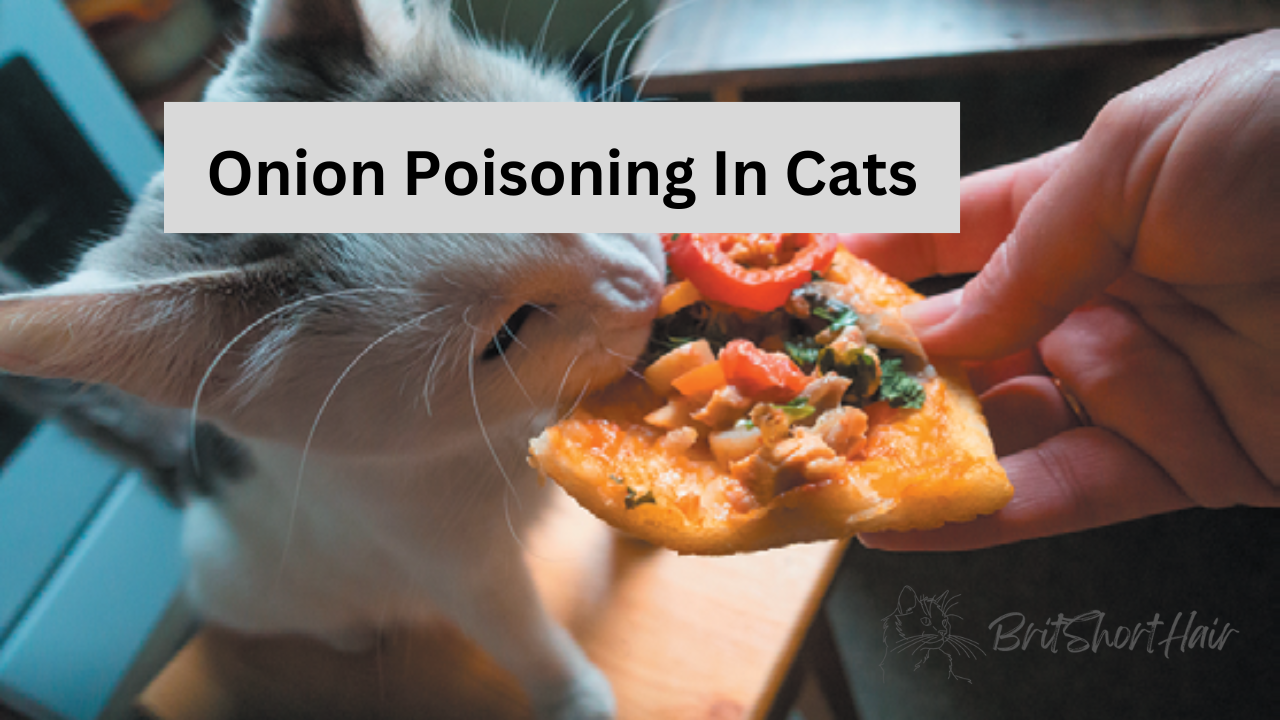Introduction
Many human dishes contain onions, which can kill cats. Onion poisoning, which can occur when a cat eats too many onions or their botanical relatives like garlic or leeks, can cause a variety of serious health issues. Anaemia, intestinal issues, and death can result from onion poisoning in cats
What Causes Onion Poisoning In Cats?
N-propyl disulfide, found in onions, garlic, leeks, and chives, is a dangerous toxin for cats. Onion poisoning can be dangerous for cats. Hemolytic anemia, caused by N-propyl disulfide-induced oxidative stress, might result from the chemical’s harmful effects.
This mysterious chemical’s mode of action is yet unknown. However, some researchers believe it involves reactive oxygen species that destroy red blood cell membranes. However, hemolytic anemia’s genesis is unknown. The amount of onion swallowed and the cat’s size can also affect onion toxicity.
Cats lack liver enzymes needed to metabolize and eliminate hazardous compounds, making them more susceptible to onion toxicity than dogs and people. Thus, this vital knowledge must be remembered to protect our feline pals. Therefore, cats should avoid any amount of onion, no matter how small.

Consequences Of Onion Poisoning In Cats
Allium toxicosis is a serious condition that can be caused by onion consumption in cats. It’s worth noting, however, that not all forms of Allium plants are equally hazardous to felines. For instance, dried or powdered versions are known to be more harmful than fresh or live ones.
Despite this, there’s simply no safe level of onion consumption for cats, unlike in other cases of toxicosis. Any amount, no matter how small, can result in harm to the red blood cells. The severity of the situation is determined by the number of red blood cells that are destroyed to the point where the cat’s body can no longer replace them. Interestingly, a minor decrease in red blood cell count is generally harmless to cats who are otherwise healthy.
Onion toxicity becomes especially dangerous for cats with preexisting health conditions that impact the red cell synthesis process. This could include chronic kidney disease, for instance, or feline viral anemia. Should a cat develop anemia following onion ingestion, even if only a small amount was consumed, it’s a medical emergency. This is particularly true if the cat has recently eaten a large number of onions and the anemia hasn’t yet been addressed.
Symptoms
Onion poisoning in cats can present with a wide range of symptoms, depending on the quantity of onion consumed and the cat’s susceptibility to the toxin. These are some of the most typical signs of onion poisoning in cats:
- Vomiting
- Diarrhea
- Lethargy or weakness
- Loss of appetite
- Abdominal pain or discomfort
- Pale gums
- Rapid breathing
- Increased heart rate
- Dark urine
- Jaundice
Examining Onion Poisoning In Cats
If you have any inkling that your furry feline may have indulged in the forbidden vegetable of onions, or is displaying alarming signs of onion toxicity, it is highly recommended that you waste no time and take your precious pet to a veterinarian for an extensive examination. The expert veterinary practitioner will conduct a thorough physical exam and may even suggest additional diagnostic testing to validate the diagnosis and determine the magnitude of the poisoning.
The adept vet may take your cat’s temperature, heart rate, and respiration rate, and comprehensively scrutinize your cat’s skin, eyes, and mucous membranes for any telltale signs of jaundice or pallid gums, alongside other symptoms of anemia.
One of the key diagnostic tests veterinarians can use is the complete blood count (CBC) test, which can detect changes in red blood cell count and morphology, which may indicate hemolytic anemia, an essential characteristic of onion poisoning. Moreover, the veterinarian may recommend additional diagnostic tests such as a blood chemistry panel or urinalysis to assess organ function and rule out any other plausible reasons for the symptoms.
Immediate and timely treatment is absolutely crucial for cats that have been exposed to onion poisoning to prevent severe complications. Thus, if you notice any alarming symptoms in your cat such as nausea, vomiting, diarrhea, or lethargy, it is essential to rush to the veterinarian without any delay to avoid any grave outcomes.

Treatment
Onion poisoning is a serious matter that requires immediate attention! Unfortunately, there’s no magic potion to cure it. Instead, cats need supportive care, which often involves a stay at the hospital and intravenous fluids. Why, you ask? Well, because the hemolysis of red blood cells is a troublesome issue, but not to fret – fluids can help flush out the toxin.
Once the cat stops ingesting the toxin, the bone marrow will begin producing new, healthy red blood cells to replace the ones that were killed. Nevertheless, in severe cases, a blood transfusion might be necessary to replenish the cat’s blood supply after significant bleeding. If the cat has eaten onions recently, veterinarians might opt for an emesis procedure to remove any undigested onion from the stomach.
That’s not all! To prevent the toxins from entering the cat’s bloodstream, activated charcoal could be given to the furry patient. But the cat’s recovery doesn’t stop there! After receiving treatment, the cat will be under close observation for any changes in their condition. If necessary, additional therapies will be administered to ensure that the cat makes a full recovery.
Conclusion
Onion poisoning is something to be taken seriously when it comes to cats. It’s crucial to keep in mind that cats should never be given raw onions or anything containing onions. That includes everything from cooked onions to onion powder, baby food, and canned items.
The list of onion-containing foods is extensive, and the consequences of onion poisoning are severe. So it’s best to play it safe and avoid giving your cat anything that might contain onions. It’s just not worth the risk!
hey we have a lot of information on cats you can check out by clicking Bristhorthair.com
wants to follow us on social media
Can cats pass away from onion poisoning?
Yes, if left untreated, cat onion poisoning can be fatal.
What if I suspect my cat ate onions?
If you think your cat has eaten onions or related plants, call your vet immediately.

